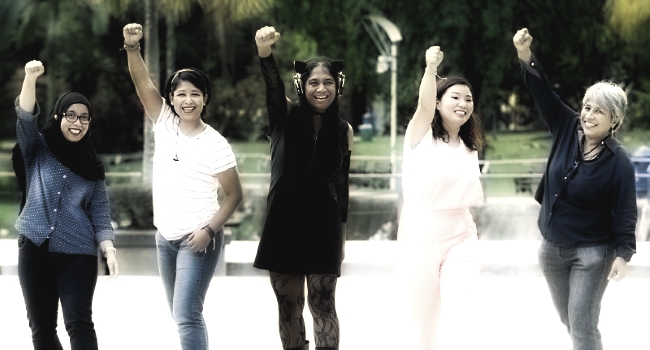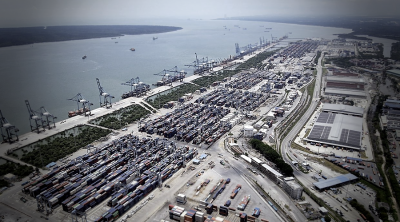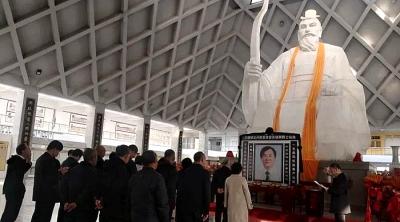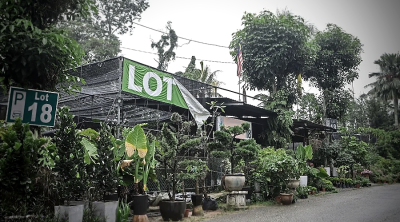By Wong Tai-Chee
According to the "Women, Business and the Law in 2020 Report" released by the World Bank in mid-January this year, the rights of women in Malaysia and the social environment for participating in economic activities scored only 50% of the total score, ranking the lowest in Southeast Asia. The scope of the report's survey covers eight areas, namely women's travel, employment, salary, marriage, childbirth, entrepreneurship, assets and pensions. The purpose of the World Bank is to encourage countries to implement social reforms to ultimately eliminate gender inequality. The protection of women's rights includes issues like extending mothers' paid maternity leave, introducing a paid paternity leave system for men, and prohibiting the dismissal of pregnant employees.
Such a report was based on the Western welfare system and human rights, and naturally the results of the survey are biased towards Western countries. The eight countries that achieved full scores in 2020 were Belgium, Denmark, France, Iceland, Latvia, Luxembourg, Sweden and Canada. Based on the eight criteria in the above review, it is not difficult to understand the reasons for the low social status of Malaysian women. It should be noted that the majority of the Malaysian population is the Muslim population. Having experienced the influence of religious polarization and fundamentalism from the Middle East over the past 40 years, Muslim women, under the direct or indirect supervision of the Islamic priests and their husbands, not only do not seek women's legal rights, but they also silently accept not to travel freely, go out to work, start a business and manage assets, and strive for higher salaries. They listen more to the views of the religious authorities that having more children is bestowed by Allah, and it is right to let it go.
Regarding participation in employment and promoting the development of the country's economy, Malaysian Muslim women seem to have generally accepted the obstacles imposed by man-made religious laws. They do not believe that men and women should be equal and that women have the right to create a level playing field for themselves. Worse still, the racial favouritism and governance approach implemented by UMNO over the past 60 years have given male Muslims the idea that they do not need to compete with other races. In the long run, one can imagine how deeply the influence of the male Muslim household head on the women in the family could be!
In another World Economic Forum's "Global Gender Gap Report 2020", the assessment of the status of women showed that the gender gap in Malaysia ranked 104 out of 153 countries surveyed. In addition to the education level of women, their economic participation rate, health status, and leadership status of the political and business circles are still very low.
Generally speaking, the reason why Malay women in Malaysia today still hold their father or husband as the core of the family and male-centred social values seems to be their moral obligation. But historical facts are not the case. According to the historian Anthony Reid of the Australian National University, in his classic work "Southeast Asia in the Age of Commerce, 1450-1680", the economic participation rate and independent ability of Southeast Asian women, including Malay women, were very high, probably the highest in the world. And they also had a decent place in the family.
During the British colonial period, such economic autonomy of Malay women was basically preserved. The main reason was that the economic power and educational level of Malay men then did not improve much. Until the early 1960s, in the two economically less developed states of West Malaysia, Kelantan and Terengganu, rural women still retained the economic control of the family, participated in business activities, and made and sold small commodities to earn higher income for the family. However, the global industrial shift and the intensification of automation after the 1970s have ruthlessly destroyed the labour-intensive handicrafts and retail industries that they depended on for survival or increase of household income.
In the era of great business changes after the 1980s, two new forces have emerged in the Malay society. One of them is to drive Malay women towards the standardization of Islamic fundamentalism, and the other is that UNMO has promoted the political dominance of male Muslims through racial political monopoly. These two forces have also widened the gap between the economic and social status of men and women in Islamic society, making Muslim women even more marginalised. Accompanying Malay society are also urbanization, and the changing role of traditional Malay rural women in the agricultural field. In addition, the deepening of dependence on foreign labour has further reduced the low-skilled labour-intensive jobs of Malay women in the industrial sector who came to live in the cities during the 1970s and early 1980s. Over time, urban Malay women with less education tend to rely on their husbands or work in low-income service industries.
Looking at women of all ethnic groups in Malaysia as a whole, they all carry the mission of taking care of their families and nurturing a new generation of lives in society. Yet they also have to take care of their own careers by fighting against discrimination against them in the traditional society, hoping to enjoy a more equal status with men in the patriarchal society. Women hold up half of the sky, and if they can actively participate in various social and economic activities, it means that their potential to contribute to society is immense. In our civilised society, all ethnic groups in Malaysia should gradually eliminate outdated and conservative ideas. Further liberation of women means the expansion of national productivity and the release of human energy resources towards building a more equal society.
(Wong Tai-Chee has his B.A and M.A degrees in Urban and Regional Planning from the University of Paris, and earned his PhD in Human Geography from the Australian National University. After teaching 20 years in Nanyang Technological University, Singapore, he retired in 2013. He then worked as Distinguished Professor for two years at Guizhou University of Finance and Economics, China, and as Dean and Professor at the Southern University College, Johor until the end of 2018. He was Visiting Professor to University of Paris (Sorbonne IV), Visiting Fellow to Pekin University, Tokyo University and University of Western Australia. His main research interests are in urban and economic issues, and more recently on Malaysian politics. Besides his 15 self-authored and edited book volumes, he has written over 100 academic articles and published widely in international journals.)

ADVERTISEMENT
ADVERTISEMENT


































